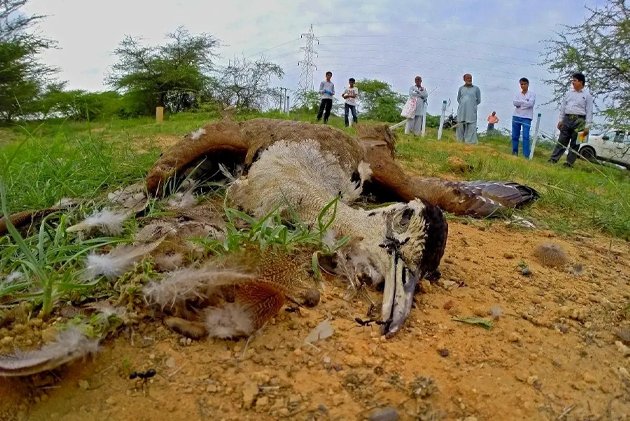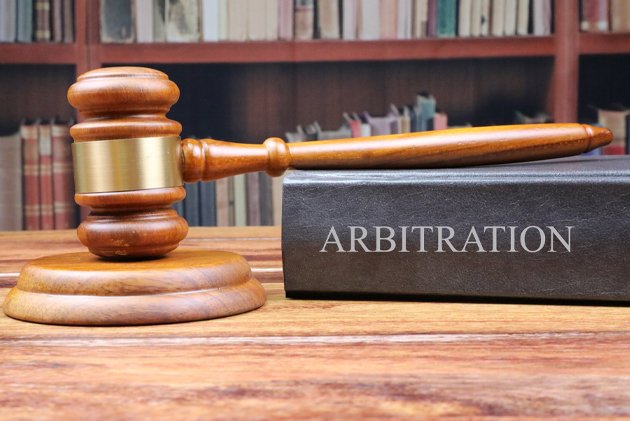October 10, 2025

From Possession To Prosecution: The Judicial Evolution Of Section 452 Of The Companies Act, 2013 And
1. Introduction
Section 452 of the Companies Act, 2013 provides for punishment for wrongful withholding of property belonging to a company by its officers or employees. This provision serves as a critical mechanism for companies to retrieve their properties from current or former officers or employees who wrongfully retain them. The section aims to provide a speedy and summary procedure for companies to recover their properties without resorting to lengthy civil litigation.
This research note provides a comprehensive analysis of Section 452, its legislative history, purpose, elements of the offense, landmark judicial interpretations, and recent amendments that have shaped its application.
2. Legislative Background and Purpose
2.1 Historical Context
Section 452 of the Companies Act, 2013 is the successor to Section 630 of the Companies Act, 1956. The provision was carried forward with modifications into the new legislation, reflecting its continued importance in corporate governance and asset protection. The provision was notified on September 12, 2013, as part of the Companies Act, 2013.
The primary purpose of Section 452, as consistently interpreted by courts, is to provide a speedy and summary procedure for retrieving the property of a company where it has been wrongfully obtained by an employee or officer, or where the property has been lawfully obtained but unlawfully retained after termination of employment.
2.2 Text of Section 452
The current text of Section 452 of the Companies Act, 2013, after amendments, reads as follows:
452. Punishment for wrongful withholding of property.
(1) If any officer or employee of a company—
(a) wrongfully obtains possession of any property, including cash of the company; or
(b) having any such property including cash in his possession, wrongfully withholds it or knowingly applies it for the purposes other than those expressed or directed in the articles and authorised by this Act,
he shall, on the complaint of the company or of any member or creditor or contributory thereof, be punishable with fine which shall not be less than one lakh rupees but which may extend to five lakh rupees.
(2) The Court trying an offence under sub-section (1) may also order such officer or employee to deliver up or refund, within a time to be fixed by it, any such property or cash wrongfully obtained or wrongfully withheld or knowingly misapplied, the benefits that have been derived from such property or cash or in default, to undergo imprisonment for a term which may extend to two years.
Provided that the imprisonment of such officer or employee, as the case may be, shall not be ordered for wrongful possession or withholding of a dwelling unit, if the court is satisfied that the company has not paid to that officer or employee, as the case may be, any amount relating to-
(a) provident fund, pension fund, gratuity fund or any other fund for the welfare of its officers or employees, maintained by the company;
(b) compensation or liability for compensation under the Workmen's Compensation Act, 1923 in respect of death or disablement.
3. Elements of the Offense
3.1 Two Distinct Offenses
From the bare reading of Section 452, it is evident that sub-section (1) creates two different and separate offenses:
- Wrongfully obtaining possession: Clause (a) contemplates a situation wherein an officer or employee of the company wrongfully obtains possession of any property of the company during the course of employment.
- Wrongfully withholding or misapplying: Clause (b) deals with cases where an officer or employee, having company property in their possession, wrongfully withholds it or knowingly applies it for purposes other than those expressed or directed in the articles and authorized by the Act.
The Supreme Court in Gopika Chandrabhushan Saran & Anr. v. M/s. Xlo India Ltd. & Anr. (2009) clarified this distinction, stating that "under this provision, it may be that an officer or an employee may have lawfully obtained possession of any property during the course of his employment, still it is an offence if he wrongfully withholds it after the termination of his employment".
3.2 Key Terms and Their Interpretation
Several key terms in Section 452 have been judicially interpreted:
- "Property": Courts have consistently held that the term "property" in Section 452 includes both movable and immovable property. This includes company premises, residential accommodations, vehicles, cash, documents, and other assets.
- "Wrongfully withholds": The Supreme Court in Lalita Jalan v. Bombay Gas Co. Ltd. (2003) defined "withholding" as "to hold back; to keep back; to restrain or decline to grant". The Court further explained that "the holding back or keeping back is not an isolated act but is a continuous process by which the property is not returned or restored to the company and the company is deprived of its possession".
- "Officer or employee": Though the term primarily refers to current officers and employees, courts have consistently interpreted it to include past officers and employees as well.
4. Landmark Supreme Court Judgments
4.1 Baldev Krishna Sahi v. Shipping Corporation of India Ltd. (1987)
This landmark judgment established the broad interpretation of Section 630 of the Companies Act, 1956 (predecessor to Section 452). The Supreme Court held that a narrow construction should not be placed upon the section, and that the term "officer or employee" should be interpreted to include not only present officers and employees but also past officers and employees of the company.
The Court observed: "It is the wrongful withholding of such property, meaning the property of the company after termination of the employment, which is an offence under s. 630(1)(b) of the Act". This interpretation was crucial as it prevented employees from escaping liability by simply resigning or retiring.
4.2 Abhilash Vinodkumar Jain v. Cox & Kings (India) Ltd. (1995)
This pivotal case extended the application of Section 630 to legal heirs of deceased employees. The Supreme Court held that a petition under Section 630 is maintainable against the legal heirs of a deceased employee for retrieval of company property.
The Court conducted a thorough analysis of Section 630 and drew the following logical deductions:
- Clause (a) is self-contained and independent of clause (b), creating penal liability for both existing and past officers or employees.
- Clause (b) is equally independent and distinct from clause (a) regarding penal consequences and applies to past employees or officers.
The Court emphasized the need for a broad and liberal construction of the provision "in furtherance of the object and purpose of the legislation which would suppress the mischief and advance the remedy".
4.3 Lalita Jalan v. Bombay Gas Co. Ltd. (2003)
This case further extended the scope of Section 630 to family members of deceased employees. The Supreme Court held that family members who continue to occupy company premises after the death of an employee to whom the accommodation was allotted are liable under Section 630.
The Court clarified that Section 630 is applicable to "anyone inducted in possession of property by such persons and who continue to withhold the property". It further explained that "all those who come in possession of premises with express and implied consent of employee including his family members and do not vacate the premises would be withholding delivery of property to company”.
4.4 Gopika Chandrabhushan Saran & Anr. v. M/s. Xlo India Ltd. & Anr. (2009)
Building upon previous judgments, the Supreme Court in this case provided a comprehensive explanation of the provision's purpose and scope. The Court stated:
"The main purpose to make action an offence under Section 630 is to provide a speedy and summary procedure for retrieving the property of the company where it has been wrongly obtained by the employee or officer of the company or where the property has been lawfully obtained but unlawfully retained after termination of the employment of the employee or the officer".
The Court reaffirmed that from a bare reading of the section, sub-section (1) creates two different and separate offenses through clauses (a) and (b). The judgment also clarified the powers of the court under sub-section (2) to issue directions for delivery of possession and to impose imprisonment for non-compliance.
4.5 Shubh Shanti Services Ltd. v. Manjula S. Agarwalla (2005)
The Supreme Court in this case further clarified the distinction between the two offenses under sub-section (1) and emphasized that the provision does not distinguish between movable and immovable property.
The Court stated: "This Section does not make any difference between the movable and immovable property. The property in Section 630 includes both movable and immovable property" [6]. This interpretation expanded the scope of the provision to cover all types of company assets.
4.6 Hooghly Mills Company Ltd. v. The State Of West Bengal And Anr. (2019)
In this more recent judgment, the Supreme Court addressed the interplay between civil disputes and proceedings under Section 630. The Court held that "the mere issuance of a temporary injunction by the civil court directing maintenance of status quo in respect of the disputed property does not make the dispute bona fide or bar the company's right to recover the disputed property from the accused employee under Section 630 of the 1956 Act".
Importantly, the Court also clarified that Section 630(2) allows the Magistrate to grant interlocutory relief prior to the conclusion of the trial under Section 630(1), stating:
"There is no stipulation in Section 630(2) that an order for delivery of wrongfully withheld property must be made only after the accused has been convicted under Section 630(1). Rather, it says the Court 'trying' the offence may direct the delivery of such property, which indicates that such an order may be passed at any stage by the trial court".
5. High Court Interpretations
Various High Courts have contributed to the jurisprudence on Section 452 (and its predecessor Section 630) through significant judgments:
5.1 Delhi High Court
In Dr. D K Modi v. Modi Rubber Ltd. & Ors. (2022), the Delhi High Court highlighted the summary nature of the procedure under Section 630 and clarified that "the concerned criminal court cannot determine the dispute as to the title of the property under dispute. Obviously, such questions are to be decided by the competent civil court".
The Court further observed: "Section 630 of the Companies Act can be invoked when there is no dispute or in any event, no bonafide dispute with respect to the property in question exists. If there is any dispute involving title to the property, the same would be adjudicated by the concerned civil court and not by Magistrate under Section 630 of the Companies Act".
In Prushottam Iron & Steel Industries (Pvt) Ltd. v. Rajneesh Gupta (2016), the Delhi High Court reiterated the purpose of Section 630 as explained by the Supreme Court in Shubh Shanti Services Ltd. and Gopika Chandrabhushan Saran.
5.2 Jurisdiction of Special Courts
With the Companies (Amendment) Act, 2020, Section 435 of the Companies Act, 2013 was amended to exclude offenses under Section 452 from the jurisdiction of Special Courts. This means that regular criminal courts, and not the Special Courts established under the Companies Act, now have jurisdiction over offenses related to wrongful withholding of property.
6. Key Amendments and Legislative Changes
6.1 Differences Between Section 630 of 1956 Act and Section 452 of 2013 Act
While Section 452 largely maintains the structure and purpose of its predecessor Section 630, there are some notable differences:
- Enhanced penalties: The fine under Section 452 has been increased to "not less than one lakh rupees but which may extend to five lakh rupees" compared to "which may extend to ten thousand rupees" under Section 630.
- Expanded scope: Section 452 explicitly includes "cash" as part of the property that may be wrongfully obtained or withheld, though courts had already interpreted "property" broadly under Section 630.
- Exclusion from Special Courts: With the 2020 amendment, offenses under Section 452 are now excluded from the jurisdiction of Special Courts established under the Companies Act.
6.2 Companies (Amendment) Act, 2020
A significant amendment to Section 452 was made through the Companies (Amendment) Act, 2020, which came into effect on January 22, 2021. This amendment added a proviso to sub-section (2) of Section 452, which states:
"Provided that the imprisonment of such officer or employee, as the case may be, shall not be ordered for wrongful possession or withholding of a dwelling unit, if the court is satisfied that the company has not paid to that officer or employee, as the case may be, any amount relating to—
(a) provident fund, pension fund, gratuity fund or any other fund for the welfare of its officers or employees, maintained by the company;
(b) compensation or liability for compensation under the Workmen's Compensation Act, 1923 in respect of death or disablement."
This amendment provides protection to employees against imprisonment in cases where they withhold dwelling units (residential accommodations) if the company has failed to pay their statutory dues such as provident fund, gratuity, or compensation.
Additionally, through Section 60 of the Companies (Amendment) Act, 2020, Section 435 of the Companies Act, 2013 was amended to exclude offenses under Section 452 from the jurisdiction of Special Courts.
7. Practical Implications and Application
7.1 Who Can File a Complaint
According to Section 452(1), a complaint can be filed by:
- The company itself
- Any member of the company
- Any creditor of the company
- Any contributory of the company
This provision ensures that multiple stakeholders can initiate action to protect company property [1].
7.2 Two-Tier Punishment Mechanism
Section 452 establishes a two-tier punishment mechanism:
- First tier (Sub-section 1): Imposition of a fine ranging from one lakh rupees to five lakh rupees upon conviction.
- Second tier (Sub-section 2): The court can order the delivery or refund of the property or cash within a specified time, and in case of default, can order imprisonment for up to two years. As clarified in Lalita Jalan, "it is non-compliance or non-observance of the order of the Court regarding delivery or refund of the property which results in making the person so directed liable for being awarded a substantive sentence of imprisonment".
7.3 Continuing Offense
Courts have consistently held that wrongful withholding of property is a continuing offense. In Lalita Jalan, the Supreme Court observed that "the holding back or keeping back is not an isolated act but is a continuous process by which the property is not returned or restored to the company" [7]. This means that limitation does not begin to run as long as the wrongful withholding continues.
7.4 Relationship with Civil Proceedings
The Supreme Court in Hooghly Mills Company Ltd. clarified that the pendency of civil proceedings does not bar criminal proceedings under Section 452 (or Section 630). The Court stated that "the cause of action in the civil suit is completely different from the question of whether the employee is wrongfully withholding the company's property, which is the issue for consideration in the present criminal proceedings".
However, as observed by the Delhi High Court in Dr. D K Modi, if there is a genuine dispute regarding the title to the property, such a dispute would need to be adjudicated by a civil court rather than in proceedings under Section 452.
7.5 Protection for Employees After 2020 Amendment
The 2020 amendment provides significant protection to employees in cases involving dwelling units. If a company has failed to pay statutory dues such as provident fund, gratuity, or compensation, the court cannot order imprisonment for wrongful possession or withholding of a dwelling unit. This amendment recognizes the potential vulnerability of employees and provides a safeguard against imprisonment in cases where companies have failed to fulfill their statutory obligations.
8. Conclusion
Section 452 of the Companies Act, 2013, continuing the legacy of Section 630 of the 1956 Act, serves as a vital tool for companies to retrieve their properties from officers or employees who wrongfully obtain or withhold them. Through a series of landmark judgments, the Supreme Court has provided a broad and liberal interpretation of this provision, extending its application to past employees, legal heirs, and family members.
The section creates two distinct offenses—wrongful obtaining of possession and wrongful withholding or misapplication—and establishes a two-tier punishment mechanism involving fines and potential imprisonment for non-compliance with court orders.
The 2020 amendment has introduced an important protection for employees regarding dwelling units when companies have failed to pay statutory dues, reflecting a balance between protecting company property and recognizing employees' rights.
As observed across multiple judgments, the primary purpose of Section 452 is to provide a speedy and summary procedure for companies to retrieve their properties without having to resort to lengthy civil litigation. This purpose continues to guide the courts' interpretation and application of this provision.
Authored By:
Ms. Nivedita Chauhan, Advocate
Founder & Managing Partner



